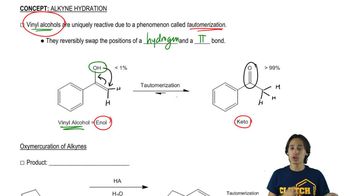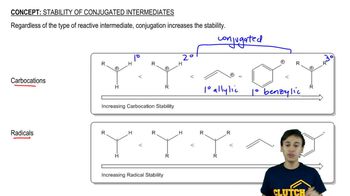Show how you would accomplish the following synthetic transformations. Show all intermediates.
e. 2,2-dibromohexane → hex-1-yne
 Verified step by step guidance
Verified step by step guidance Verified video answer for a similar problem:
Verified video answer for a similar problem:



 3:25m
3:25mMaster Predict the major product. with a bite sized video explanation from Johnny
Start learning